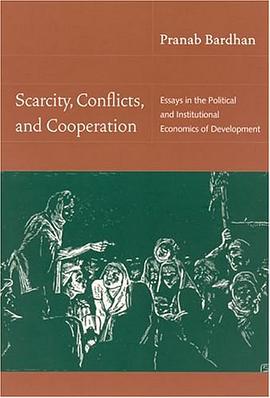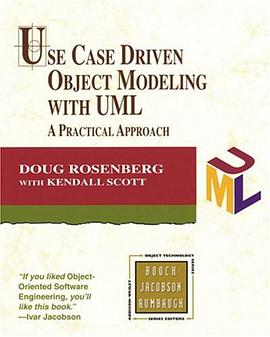

具体描述
This wide-ranging review of some of the major issues in development economics focuses on the role of economic and political institutions. Drawing on the latest findings in institutional economics and political economy, Pranab Bardhan, a leader in the field of development economics, offers a relatively nontechnical discussion of current thinking on these issues from the viewpoint of poor countries, synthesizing recent research and reflecting on where we stand today.The institutional framework of an economy defines and constrains the opportunities of individuals, determines the business climate, and shapes the incentives and organizations for collective action on the part of communities; Pranab Bardhan finds the institutional framework to be relatively weak in many poor countries. Institutional failures, weak accountability mechanisms, and missed opportunities for cooperative problem-solving become the themes of the book, with the role of distributive conflicts in the persistence of dysfunctional institutions a common thread.Special issues taken up include the institutions for securing property rights and resolving coordination failures; the structural basis of power; commitment devices and political accountability; the complex relationship between democracy and poverty (with examples from India, where both have been durable); decentralization and devolution of power; persistence of corruption; ethnic conflicts; and impediments to collective action. Formal models are largely avoided, except in two chapters where Bardhan briefly introduces new models to elucidate currently under-researched areas. Other chapters review existing models, emphasizing the essential ideas rather than the formal details. Thus the book will be valuable not only for economists but also for social scientists and policymakers.
作者简介
目录信息
读后感
评分
评分
评分
评分
用户评价
读完这本书,我最大的感受是它提供了一个全新的“世界观过滤器”。在接触这本书之前,我或许更倾向于用道德标准去评判冲突的对错;但这本书强迫我跳出这种二元对立的思维定式,转而从更底层的结构性力量去审视一切现象。它成功地将抽象的“人性”与具体的“环境压力”进行了动态的耦合。比如,书中关于“囚徒困境”在不同文化背景下表现形态的差异分析,就非常引人入胜。它展示了文化规范如何作为一种“软性约束”,在资源竞争的激烈程度超过临界点时,如何瞬间失效,并被更原始的利益驱动所取代。这种对人类行为的“去浪漫化”处理,虽然略显残酷,却是极其真实的。我发现自己开始不自觉地用书中的框架去解析新闻报道中的国际事件,那种穿透表象直达本质的清晰感,是很少有书籍能给予的。它不提供简单的答案,而是提供了一套更强大的提问工具箱。
评分这本书的语言风格是一种内敛而又极具穿透力的力量感。它很少使用煽情的词汇,但其逻辑的严密性和论证的层层递进,却比任何夸张的修辞都更能震撼人心。我感觉自己像是跟着一位经验老到的航海家,在充满暗礁和风暴的未知海域中航行,作者提供的航海图清晰可靠,指引我避开那些容易让人迷失的价值判断的漩涡。全书的论述脉络如同精心编织的巨大挂毯,每一个细节(比如某个特定历史时期的法律条文,或者某个经济模型的特定参数设置)都不是孤立的,而是紧密联系在一起,共同支撑起一个关于人类社会动态平衡的宏大理论。合上书卷时,那种意犹未尽的感觉非常强烈,它没有给人提供心灵鸡汤式的安慰,而是给予了一种面对复杂现实世界时所需的清醒与力量。这是一本值得反复研读,并在不同人生阶段都能读出新意的经典之作。
评分这本书的叙事节奏,在我看来,是一种精心设计的、时而紧张时而舒缓的交响乐章。它不像那种纯粹的学术论著,只会堆砌公式和数据,而是巧妙地将枯燥的理论嵌入到生动的历史情境之中。想象一下,作者如何将古代部落为争夺水源而进行的微妙博弈,与现代跨国公司在知识产权领域进行的无声战争进行类比,那种跨越时空的洞察力,简直令人拍案叫绝。最让我感到震撼的是,它在论证“合作”的脆弱性时所展现的严谨。它不是盲目乐观地歌颂合作的美好,而是将合作视为一种高成本、高风险的战略选择,随时可能因为“搭便车者”的出现或外部冲击而被轻易瓦解。书中关于多方博弈模型的运用,即便对我这个非专业人士来说,也清晰地展现了达成有效协议所需付出的巨大沉没成本。这种深刻理解,让我在阅读过程中,不断反思我们自己所处的社群中,那些看似理所当然的“共识”究竟是如何艰难地维系至今的。作者的笔触冷静而有力,如同手术刀般精准地切开了问题的肌理。
评分这本书的结构安排堪称教科书级别的典范,它清晰地划分了理论基础、历史案例和未来展望三个部分,但过渡却异常流畅自然,没有丝毫的断裂感。尤其是在讨论“稀缺性”这一概念时,作者没有停留在传统的物质资源层面,而是将其拓展到了注意力、信任和时间等当代社会的核心稀缺要素上,这极大地拓宽了我的认知边界。那些关于“有限理性”在群体决策中如何被放大和扭曲的章节,简直是为现代社会中的信息战和舆论操纵提供了最深刻的理论支撑。我尤其留意了作者是如何处理“例外”的——那些看似打破了资源竞争铁律的、高度成功的长期合作案例,作者并未将其简单归结为“运气”或“道德高尚”,而是细致地梳理了它们背后那些精心设计的制度保障和强大的外部威慑机制。这种对“成功合作”的非情感化、工程学式的解构,展现了作者深厚的分析功底。
评分这本书的开篇,仿佛是把我直接拽进了一个错综复杂、层层叠叠的迷宫里。作者构建了一个宏大的叙事框架,探讨的是人类社会活动中那些永恒的驱动力——资源的有限性、随之而来的摩擦,以及为了生存和发展不得不寻求的协作模式。我特别欣赏它那种不回避核心矛盾的勇气。它没有用温和的笔触去描绘一个理想化的世界,而是毫不留情地揭示了在资源稀缺的铁律下,个体和群体行为的真实逻辑。比如,书中对历史上几次关键性的资源分配冲突的分析,简直是教科书级别的案例拆解。它不仅仅是描述了“发生了什么”,更深入地剖析了“为什么会这样发生”,那种深植于人性弱点和环境制约之中的必然性,读来令人不寒而栗,却又不得不承认其洞察的深刻。尤其是对信息不对称在冲突升级中所扮演角色的论述,极其精妙,让我对日常生活中那些看似偶然的摩擦,有了一种全新的、更具系统性的理解视角。这本书的文字密度非常高,每一句话似乎都承载着沉甸甸的理论重量,初读时需要放慢速度,细细咀嚼,才能体会到其中蕴含的丰富意涵。
评分 评分 评分 评分 评分相关图书
本站所有内容均为互联网搜索引擎提供的公开搜索信息,本站不存储任何数据与内容,任何内容与数据均与本站无关,如有需要请联系相关搜索引擎包括但不限于百度,google,bing,sogou 等
© 2026 book.quotespace.org All Rights Reserved. 小美书屋 版权所有




















